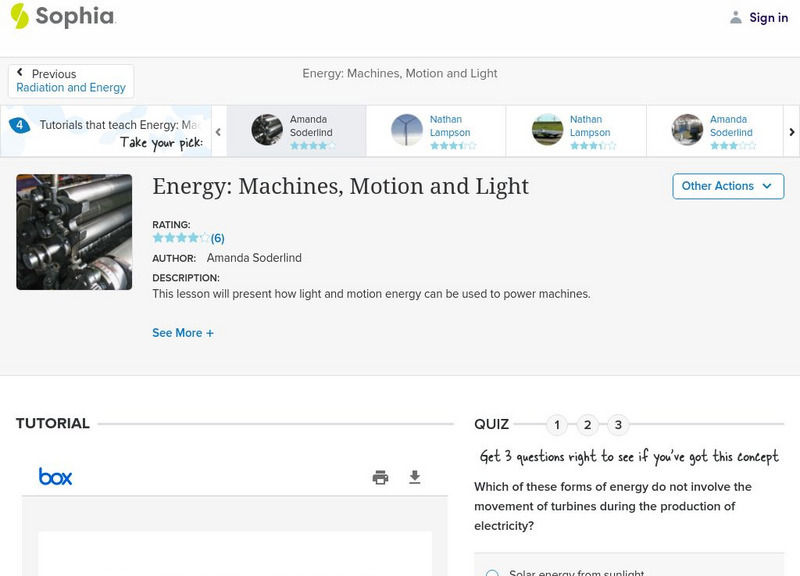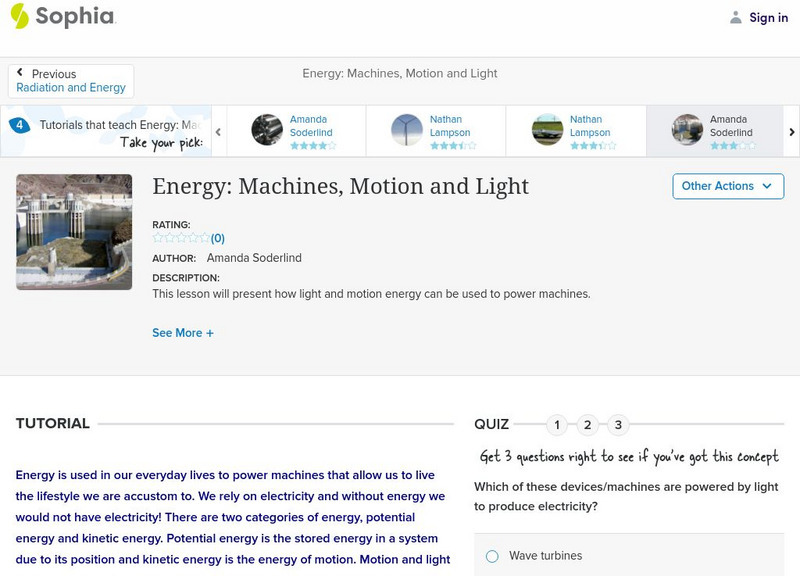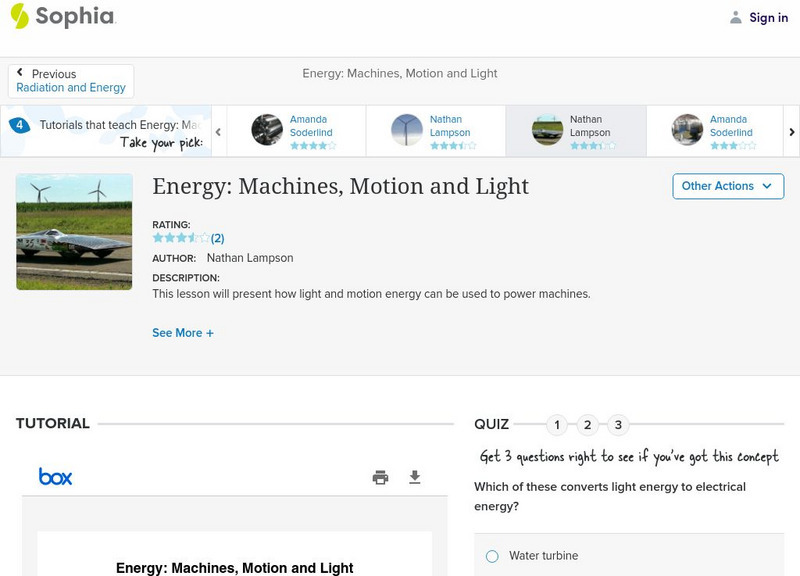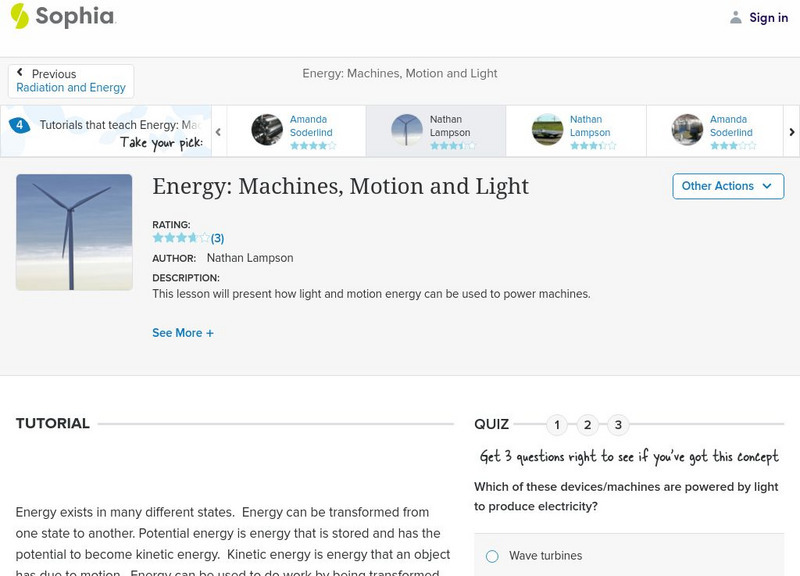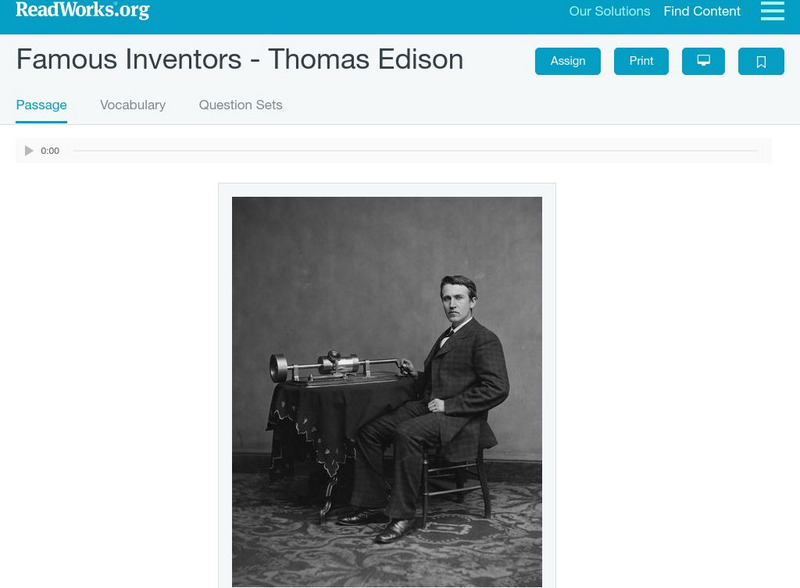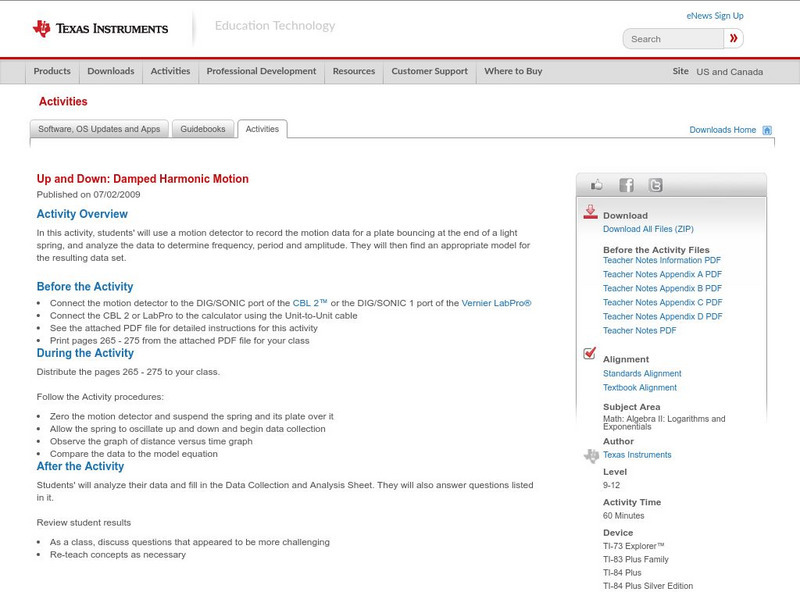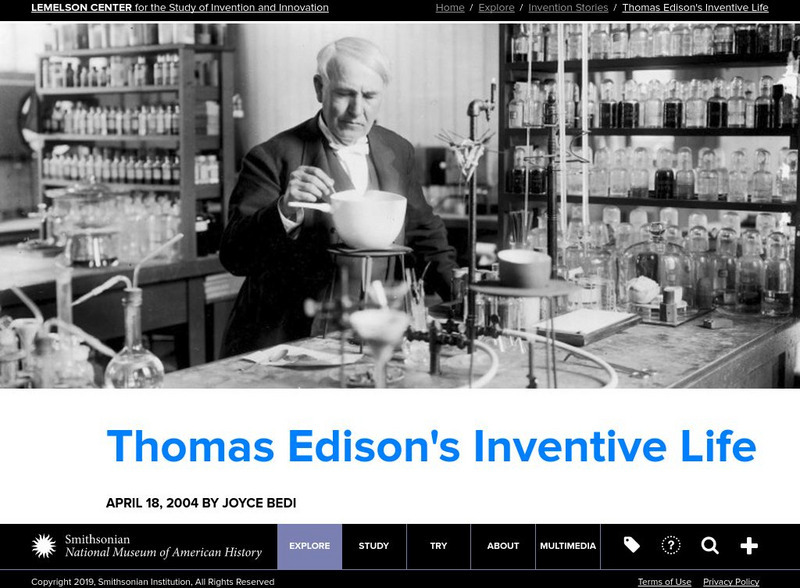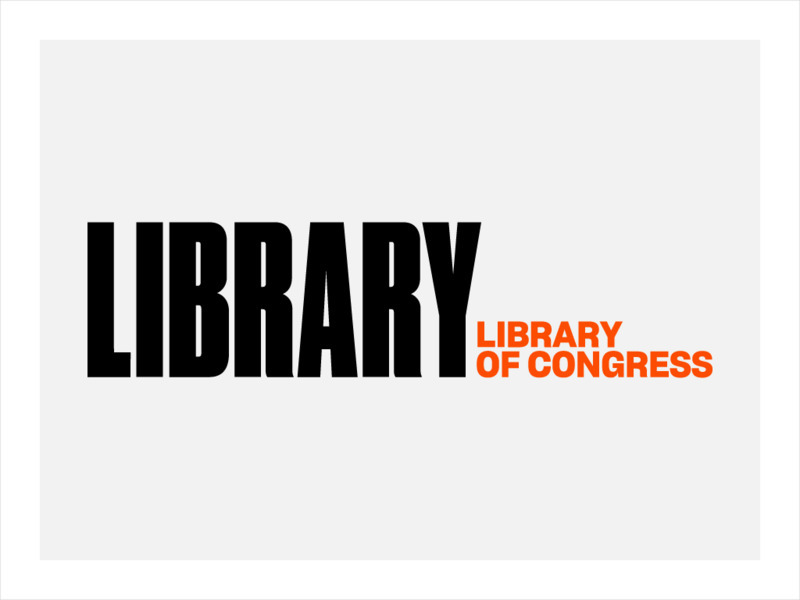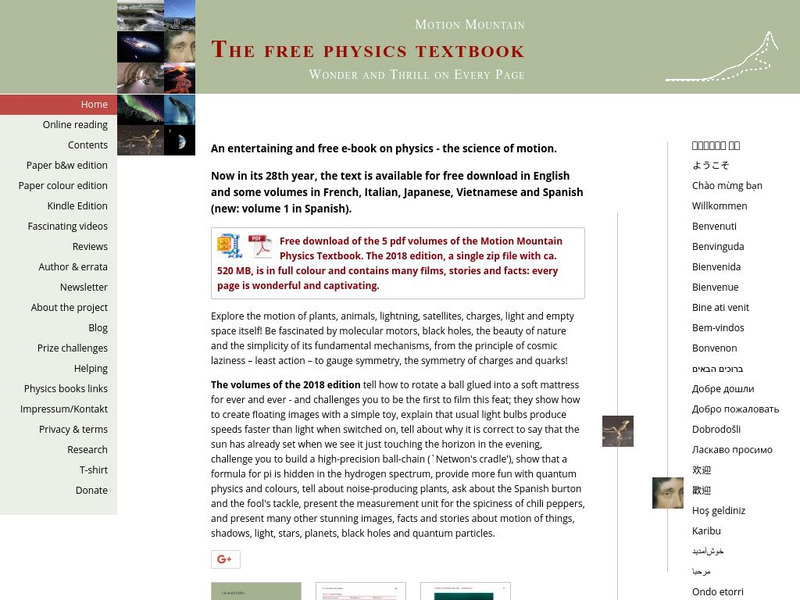Hi, what do you want to do?
Science Buddies
Science Buddies: Focusing Your Flash for 'Freezing' Motion
Here's an interesting flash photography project. With an inexpensive Fresnel lens, you can concentrate the light from your flash. You'll be able to shoot with a smaller aperture and a shorter flash duration. This will give you a greater...
Physics Classroom
The Physics Classroom: Waves: Waves and Wavelike Motion
Here is an introduction to the concept of waves and wavelike motion people experience anywhere and everywhere.
Sophia Learning
Sophia: Energy: Machines, Motion and Light
An introductory lesson describing the definition of energy, and highlighting different sources of usable energy.
Georgia State University
Georgia State University: Hyper Physics: Wave Motion
Two wave graphs depicting a sine wave and relating the various characteristics (wavelength, amplitude, frequency, and period) of a wave to each other. The site includes an interactive JavaScript form in which the visitor enters one...
TeachEngineering
Teach Engineering: Red Light, Green Light
Building upon their understanding of forces and Newton's laws of motion, students learn about the force of friction, specifically with respect to cars. They explore the friction between tires and the road to learn how it affects the...
Smithsonian Institution
Lemelson Center: Tracing the Roots of America's Motion Picture Industry
In the late 1800's, Thomas Edison and his fellow inventors were key in the American film industry's boom.This web site provides a podcast and accompanying transcript tracing the roots of the film industry in America. Podcast [21:27]
Sophia Learning
Sophia: Energy: Machines, Motion and Light: Lesson 3
This lesson will present how light and motion energy can be used to power machines. It is 3 of 4 in the series titled "Energy: Machines, Motion and Light."
Sophia Learning
Sophia: Energy: Machines, Motion and Light: Lesson 4
This lesson will present how light and motion energy can be used to power machines. It is 4 of 4 in the series titled "Energy: Machines, Motion and Light."
Sophia Learning
Sophia: Energy: Machines, Motion and Light: Lesson 2
This lesson will present how light and motion energy can be used to power machines. It is 2 of 4 in the series titled "Energy: Machines, Motion and Light."
Read Works
Read Works: Famous Inventors Thomas Edison
[Free Registration/Login Required] This short biographical piece shares information about Thomas Edison, the inventor of the phonograph, light bulb, motion picture camera, and more. This passage is a stand-alone curricular piece that...
TeachEngineering
Teach Engineering: Flocculants: The First Step to Cleaner Water!
Students experience firsthand one of the most common water treatment types in the industry today, flocculants. They learn how the amount of suspended solids in water is measured using the basic properties of matter and light. In...
Open Curriculum
Open Curriculum: Analysis of Forces
This study information helps students apply Newton's third law and understand forces.
Open Curriculum
Open Curriculum: Free Waves
With this article, students can learn about and understand the concept of wave motion.
Texas Instruments
Texas Instruments: Up and Down: Damped Harmonic Motion
In this activity, students' will use a motion detector to record the motion data for a plate bouncing at the end of a light spring, and analyze the data to determine frequency, period and amplitude. They will then find an appropriate...
TeachEngineering
Teach Engineering: Floating and Falling Flows
Students discover fluid dynamics related to buoyancy through experimentation and optional photography. Using one set of fluids, they make light fluids rise through denser fluids. Using another set, they make dense fluids sink through a...
Curated OER
National Park Service: Dison National Historical Site: The Invention Factory
This terrific interactive site from the National Park Service describes the different buildings on Thomas Edison's West Orange, New Jersey's laboratory facility. After exploring the buildings, follow Edison's invention and application of...
Smithsonian Institution
Lemelson Center: Thomas Edison's Inventive Life
This site is a complete resource for learning about Edison's life, his inventions, and electricity. If you like experimenting, there are instructions included for how to make your own light bulb. Good photos.
Curated OER
National Park Service: Thomas Edison National Historical Park: Edison Biography
Here is a very detailed biography of Thomas Edison ranging from his boyhood and his work as a telegrapher, moving on to his invention of the phonograph and incandescent light bulb, and finally, a description of his laboratories where he...
Library of Congress
Loc: Learning Page: Thomas Edison
This resource provides lesson plans and information about Thomas Edison and his inventions.
Other
Motion Mountain Physikverein: Motion Mountain
A free PDF introductory physics textbook with color images, videos, and animations. The textbook aims to show how physics explains the natural world. The book is broken into kinematics, relativity, light, quantum mechanics, and The...
University of Florida
Florida Museum of Natural History: Physical Science
This guide focuses on four physical science topics that fascinate children and scientists alike. They are motion, magnets, sound, and light. With your guidance and support, these topics provide children with many opportunities to explore...
PBS
Pbs Learning Media: Einstein: How Smart Was He?
This essay from the NOVA Web site explores the impact Einstein made on physics and most everything we know about the cosmos.
CK-12 Foundation
Ck 12: Wave Speed Calculations
[Free Registration/Login may be required to access all resource tools.] Students investigate and analyze characteristics of waves, including velocity, and calculate the relationship between wave speed, frequency, and wavelength.
Open Curriculum
Open Curriculum: Vibrations
To understand the concept and properties of vibrations and periodic motions such as the Simple Harmonic motion.







